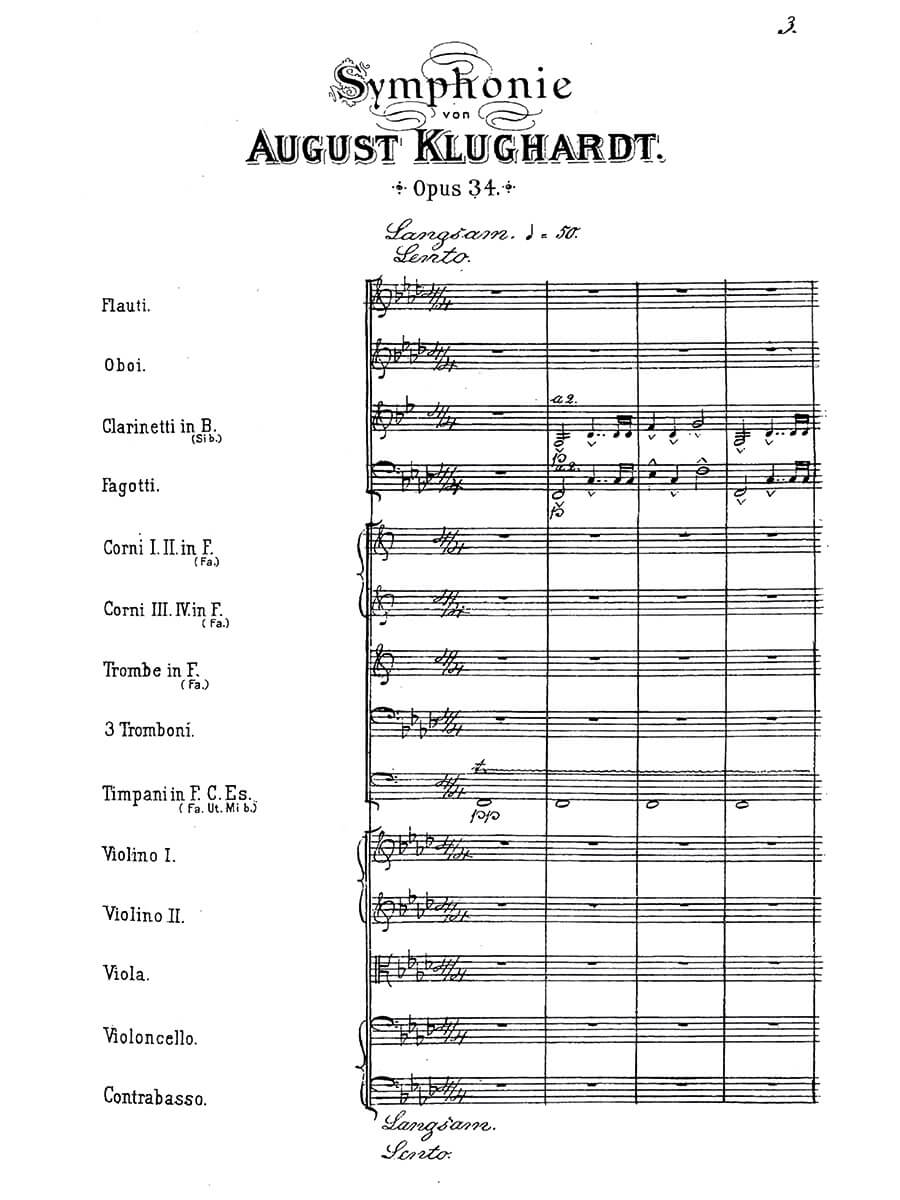II. Symphony F minor Op. 34
Klughardt, August
36,00 €
Preface
August Klughardt – Symphony No 2 in F minor Op. 34
(b. Köthen, 30 November 1847 — d. Dessau, 3 August 1902)
(1876)
I Lento (p. 3) – Vivace ma non troppo (p. 12) – Più tranquillo (p. 42) – Sempre più animato (p. 49) – Tranquillo (p. 54) – Animato (p. 59)
II Adagio con espressione (p. 74)
III Appassionato (p. 94) – attacca:
IV Risoluto (p. 126) – Lento, con tutta la forza (p. 145)
Preface
Until a few years ago August Klughardt was completely forgotten, apart from a late wind quintet that has long formed part of the core repertoire of wind ensembles. Since then four of his five symphonies (he withdrew the first himself), his concertos, and a rich body of chamber music have appeared on CD, and his ingratiatingly melodious, readily accessible, impeccably crafted music, poised between the competing currents of his day, is heard ever more often in concert. Klughardt’s masterly counterpoint, excellent orchestration, and clear sense of form (even in unusual solutions) sound captivating even when the degree of originality is slightly lower and his melodic invention not exactly unique.
Klughardt produced his first compositions at the age of ten for the musical circle at Cöthen’s grammar school. In 1863 his family moved to Dresden, where he learned piano from the court conductor Eduard Thiele (1812-1895) and music theory from Ferdinand Diedicke (1836-1903). A year later he gave his public début as a pianist. After completing his school leaving certificate in 1866 he undertook further studies in Dresden, where he increasingly stood out as a composer. From 1867 he was employed as a conductor, first at Posen Town Theater (1867-68), then in the municipal theaters of Neustrelitz and Lübeck. From 1869 to 1873 he conducted at the court theater in Weimar, where he befriended Franz Liszt. He then returned to Neustrelitz, where he was appointed music director in 1880. In 1882 he was offered the position of court conductor in Dessau, a position he held for two decades until his death. In 1892-93 he conducted Dessau’s first production of Der Ring des Nibelungen; in 1898 he was inducted into the Prussian Academy of Arts; and in 1900 he received an honorary doctorate from Erlangen University. He turned down an offer to head the Berlin Sing-Akademie, allowing Georg Schünemann (1866-1952) to guide the fate of this hallowed choral institution for half a century. …
Read full preface / Das ganze Vorwort lesen> HERE
Score Data
| Edition | Repertoire Explorer |
|---|---|
| Genre | Orchestra |
| Size | 210 x 297 mm |
| Printing | Reprint |
| Pages | 156 |
